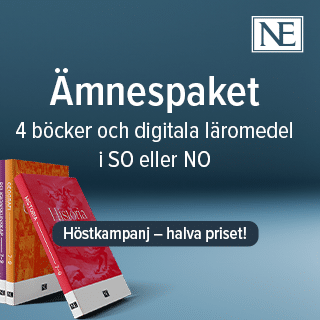Lärarstudenters digitala studievardag: Informationslitteracitet vid en förskollärarutbildning
Fredrik Hanell har studerat mötet mellan förskollärarutbildningens sociala praktik och praktiker utvecklade kring användning av digitala redskap – i synnerhet den sociala nätverkstjänsten Facebook.
Fredrik Hanell
Olof Sundin, Lunds universitet Docent Helena Francke, Högskolan i Borås
Docent Jannica Heinström, Åbo Akademi
Lunds universtitet
2019-02-08
Lärarstudenters digitala studievardag : Informationslitteracitet vid en förskollärarutbildning
Teacher students’ digital daily lives: information literacy at a pre-school teacher education
Teacher students’ digital daily lives: information literacy at a pre-school teacher education
This dissertation reports on an investigation into how digital tools are used, negotiated and given meaning in Swedish pre-school teacher education. The overall aim has been to create a deeper understanding of how students’ information literacies are enacted when digital tools are used and appropriated in the daily life at a pre-school teacher education, in relation to conceptions of the digitalisation of teacher education in national policy. A netnographical study at a pre-school teacher education was conducted between 2012 and 2015. The study generated online material, mainly from a Facebook Group used by students and teacher, and field notes from participant observations, transcribed interviews and a field diary. Through application of a socio-cultural perspective on information literacy, the netnographical material was analysed using the concepts appropriation and identity. To analyse the discursive level, four national policy documents with demands for increased digital competence in teacher education were analysed using Carol Bacchi’s ‘what’s the problem represented to be?’ approach.
The findings show how views on learning and identity interact with the materiality of the digital tools and the enabling and constraining properties of the local learning environment when information literacies are enacted. The identity position discussion-oriented student is connected to how the Facebook Group is appropriated as a relation-building tool and a relational information literacy. This type of information literacy entails a view on learning as co-learning, rooted in the historical development of pre-school teacher education, and a non-hierarchical understanding of teacher and student roles. The identity positions goal-oriented student and customer-oriented student are connected to how the Facebook Group is appropriated as a collaborative problem-solving tool and a pragmatic information literacy. This form of information literacy reflects instrumental and neoliberal views on learning, and a traditional understanding of teacher and student roles. The policy analysis shows how an economic and competitive perspective underpins demands for increased digital competence in teacher education, and how the value of digital tools for learning and teaching is taken for granted. The idea of co-learning, that is found to be influential but not fully accepted at the pre-school teacher education, is difficult to combine with an economic perspective emphasising measurability and quantification. The economic perspective is partly compatible with a pragmatic information literacy. The findings of the dissertation shed light on the gap between what is described as important in policy documents and what teacher students and teachers describe as important when digital tools are used in teacher education.
Relaterade länkar

Fritidshem
 Åk F–6
Åk F–6 Matematikångest
 Åk 4–Vux
Åk 4–Vux 






